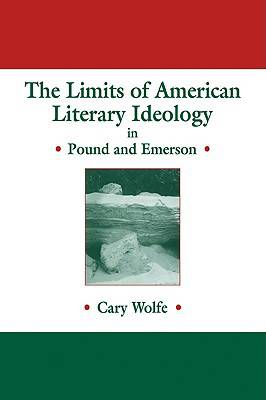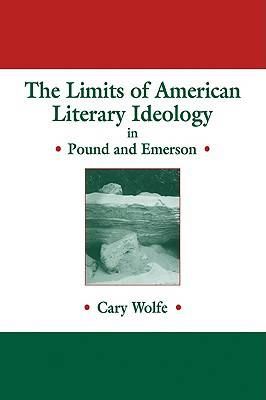
- Afhalen na 1 uur in een winkel met voorraad
- Gratis thuislevering in België vanaf € 30
- Ruim aanbod met 7 miljoen producten
- Afhalen na 1 uur in een winkel met voorraad
- Gratis thuislevering in België vanaf € 30
- Ruim aanbod met 7 miljoen producten
Zoeken
The Limits of American Literary Ideology in Pound and Emerson
Cary Wolfe
€ 64,95
+ 129 punten
Uitvoering
Omschrijving
This study analyzes the power, allure, and consequences of radical individualism and the kind of cultural critique it generates in the major figure of American Romanticism, Ralph Waldo Emerson, and the central figure of American modernism, Ezra Pound. Both writers set out to criticize and heal the dissociation of ethics, economics, and politics that they saw as the alienating cultural consequence of capitalism. But because their vision of the inalienable individual was modeled on the structure and logic of private property, they reproduced the very contradictions and alienations that they set out to critique and overcome in their ambitious cultural projects.
Specificaties
Betrokkenen
- Auteur(s):
- Uitgeverij:
Inhoud
- Aantal bladzijden:
- 308
- Taal:
- Engels
- Reeks:
- Reeksnummer:
- nr. 69
Eigenschappen
- Productcode (EAN):
- 9780521107327
- Verschijningsdatum:
- 2/04/2009
- Uitvoering:
- Paperback
- Formaat:
- Trade paperback (VS)
- Afmetingen:
- 152 mm x 229 mm
- Gewicht:
- 453 g

Alleen bij Standaard Boekhandel
+ 129 punten op je klantenkaart van Standaard Boekhandel
Beoordelingen
We publiceren alleen reviews die voldoen aan de voorwaarden voor reviews. Bekijk onze voorwaarden voor reviews.











